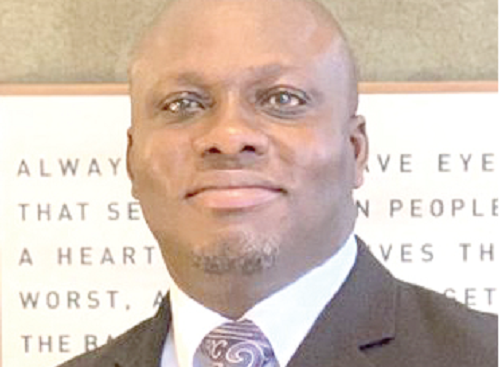
Innovative educational assessment critical to economic growth
Education is a veritable means of knowledge generation and for developing human capital. It is the medium for imparting learning. Learning in itself brings about desirable changes in knowledge, skills, attitudes and behaviours.
Education is an economic good because it is not easily obtainable and thus needs to be apportioned. Economists regard education as both consumer and capital good because it offers utility to a consumer and also serves as an input into the production of other goods and services.
Advertisement
As a capital good, education can be used to develop the human resources necessary for economic and social transformation.
The focus on education as a capital good relates to the concept of human capital which emphasises that the development of skills is an important factor in production activities. Building human capital has, therefore, been recognised in recent times as crucial to the overall development of any nation.
Human capital development
Human capital is an intangible resource and has been viewed and defined by researchers and organisations in a number of different ways.
It incorporates knowledge, skills, innovation and the individual employee’s ability to handle task and also includes the firm’s value culture and philosophy.
Human capital development on the other hand implies building an appropriate balance and critical mass of human resource base and providing an enabling environment for all individuals to be fully engaged and contribute to natural development efforts.
It involves providing opportunities for all citizens to develop to their fullest potentials through education, training and motivation as well as creating the enabling environment for everyone to participate fully in national development.
Any effort to increase human knowledge, enhance skills and productivity as well as stimulated resourcefulness of citizens is an effort in human capital development.
Furthermore, human capital is seen as the enlargement of human capabilities, where the strategy is to promote investment in the development of people through education, skills, work productivity and creativity.
Human capital must be trained, educated and developed within the system of an organisation for the purpose of enhancing productivity of the organisation through the expertise of its work force.
Tool for human capital development
Quality educational assessment cannot be compromised, for it is indispensable for excellence in the development of human capital.
In order to make a significant contribution to economic growth and development, innovative educational assessment is a necessity.
The 21st Century paradigm is shifting towards transformative educational assessment as a priority.
Most economists regard quality assessment as both a consumer and capital good because it offers utility (satisfaction) to a consumer and also serves as an input to develop the human resources necessary for economic and soul transformation.
It is widely accepted that quality education creates improved citizens and help to upgrade the general standard of living in a society.
The increase faith in education as an agent of change in many developing countries, has led to heavy investments in it.
The pressure for higher education in many developing countries has undoubtedly been helped by public perception of financial reward from pursuing and access promotes economic growth.
Constraints
The educational sector in Ghana is evidently struggling to meet the needs of the required human capital development for the nation.
It is still hampered by the fact that it has not completely broken loose from the influence and impact of the objectives and philosophy of education of the then British colonial masters.
There have been various attempts to reform and rejuvenate the Ghanaian education system since independence. These have not been far reaching and sustained enough to make desired impact.
The following challenges impede quality education for human capital development:
• Shortfall in the quantity and quality of teachers, infrastructural decay, lack of educational assessment materials, large class size and heavy work load, problem inherent in innovative assessment implementation, conditions of service for educators, funding issues in educational institutions and difficulty in aligning with best practices worldwide
Recommendations
Developing countries are confronted by most of the problems that could limit the capacity of expansion in education to stimulate human capital growth and development.
Some of these problems are underemployment, low absorptive capacity, shortage of professionals, regional imbalances and brain drain.
The persistence of many problems in spite of the various policy formulation and responses points to the need for a more focused, responsive, functional and qualitative educational assessment system.
Thus, to meet the demands of transformational human capital development the following recommendations are proposed:
Government should fully implement and enforce the provisions of the transformational basic education reforms whilst improving the quality and resources in our schools.
Secondly, the government in its employment policies should lay more emphasis on specialisation and competence rather than paper qualification and ill-gotten certificates.
There is also the need for more commitment by educational stakeholders to promote the effective utilisation of innovative assessment alternatives in the Ghanaian educational system.
Last but not the least, priority is required for the regular training of teachers to align with contemporary educational assessment modalities for quality human capital development.
The writer is the Registrar, Chartered Institute of Agriculture Ghana




